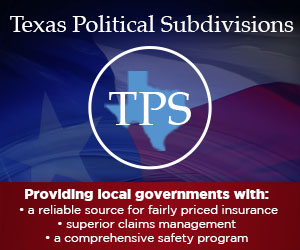Conflict of Interest and Open Meetings Act
Re: Application of conflict of interest law and the Open Meetings Act to the governing board of a groundwater conservation district (RQ-0304-GA).
Submitted by Troy Fraser
Chair, Committee on Business and Commerce
Texas State Senate
Summary, Opinion No. GA-334: The directors of an underground water conservation district are subject to chapter 171 of the Local Government Code, which regulates conflicts of interest involving local public officials. Chapter 171 requires a local public official with a substantial interest in a business entity or real property on which board action will have a special economic effect to disclose his interest and abstain from further participation in the matter. A violation of this requirement is a Class A misdemeanor.
When section 171.004(a) requires a local public official to abstain from further participation in a matter, it does not prohibit him from attending an executive session of his governmental body held to discuss the matter.
A contested permit hearing before the Board of Directors of the Clearwater Underground Water Conservation District is “litigation” within Government Code section 551.071(1)(A).
Alcohol Permit/Poker Tournament
Re: Whether a business that holds an on-premises alcoholic beverage permit may host a poker tournament (RQ-0305-GA).
Submitted by John W. Smith
Ector County District Attorney
Summary, Opinion No. GA-335: A holder of an on-premises alcoholic beverage permit may not, without violating both section 47.04(a) of the Penal Code and Rule 35.31 of the Alcoholic Beverage Commission, host a poker tournament in which participants risk money or any other thing of value for the opportunity to win a prize. A holder of an on-premises alcoholic beverage permit may, without violating either section 47.04(a) of the Penal Code or Rule 35.31 of the Alcoholic Beverage Commission, host a poker tournament in which participants do not risk money or any other thing of value for the opportunity to win a prize.
Jury Pool
Re: Whether a justice of the peace may establish a standing pool of qualified volunteers to serve for jury duty (RQ-0306-GA).
Submitted by Mark E. Price
San Jacinto County Criminal District Attorney
Summary, Opinion No. GA-336: Chapter 62 of the Government Code provides broadly for summoning juries for trial in a justice court. Articles 45.027 and 45.028 of the Code of Criminal Procedure additionally provide for summoning a jury for a criminal trial in a justice court. For the trial of a criminal matter, a justice court may utilize the procedures in either chapter 62 of the Government Code or articles 45.027 and 45.028 of the Code of Criminal Procedure. While articles 45.027 and 45.028 do not prohibit utilizing a pool of volunteers for empaneling a venire, such a method must guard against a due process challenge that it systematically excludes a distinctive group in the community from the venire.
Civil Practice and Remedies Code
Re: Whether Civil Practice and Remedies Code section 75.002, subsections (f) and (g) apply to the state, a county, or a municipality that owns, operates, or maintains its premises for bicycle-related recreational activities (RQ-0308-GA).
Submitted by Ismael “Kino” Flores
Chair, Committee on Licensing and Administrative Procedures
Texas House of Representatives
Summary, Opinion No. GA-338: Civil Practice and Remedies Code section 75.002, subsections (f) and (g) do not apply to the state, a county, or a municipality that owns, operates, or maintains its premises for only bicycle-related recreational activities.
Excess Contributions
Re: Procedures applicable to a county’s accounting for and spending excess contributions returned to a county pursuant to section 26.008 of the Government Code (RQ-0311-GA).
Submitted by L. Marliessa Clark, C.P.A.
Hamilton County Auditor
Summary, Opinion No. GA-340: Section 26.008 of the Government Code applies to court costs collected by certain counties and remitted to the comptroller to supplement county judges’ salaries. Under section 26.008, the Comptroller of Public Accounts returns excess contributions to the participating counties, to be used only for court-related purposes for the support of the judiciary. Section 26.008 does not require the Hamilton County Commissioners Court to create a separate fund to account for the excess contributions or to adopt a separate budget for those funds. The Hamilton County Commissioners Court does not have authority to adopt a special budget, distinct from the annual county budget, for the excess contributions.
The “court-related purposes” for which the excess contributions may be spent include judges’ salaries and any other costs necessary to support the operation and maintenance of the courts and the administration of justice. Section 26.008 does not prohibit the commissioners court from allowing the excess contributions to be accumulated from year to year. The county budget of a prior fiscal year may not be retroactively amended to provide that excess contributions received in that year were spent under that budget.
Statement of Ownership – Manufactured Home
Re: Whether the Department of Housing and Community Affairs must revoke the statement of ownership and location, issued under Occupations Code section 1201.207, of a manufactured home when the home has been relocated without the payment of ad valorem taxes (RQ-0313-GA).
Submitted by Joel D. Littlefield
Hunt County Attorney
Summary, Opinion No. GA-343: A tax lien that has attached to a manufactured home under section 32.01(a) of the Tax Code must be listed on a statement of ownership and location (a “Statement”) issued by the Texas Department of Housing and Community Affairs under Occupations Code section 1201.205(6). The Department may refuse to issue or may suspend or revoke a Statement that is based on false or fraudulent information regarding an existing tax lien. In addition, the Department may refuse to issue or may suspend or revoke a Statement for a manufactured home that was relocated without a relocation permit from the Department of Transportation or with a relocation permit obtained without truthful information regarding taxes due on the home.







